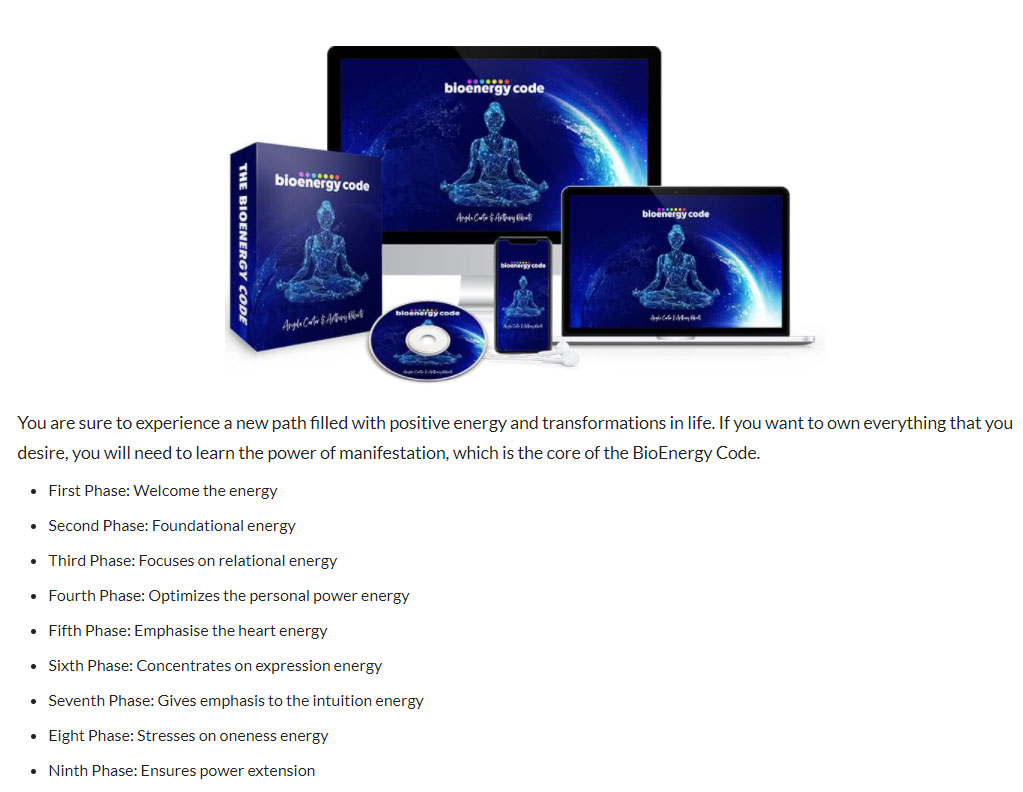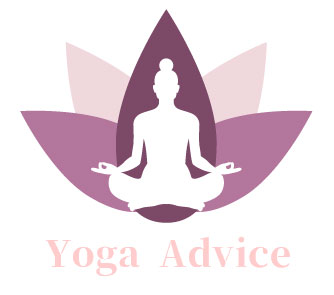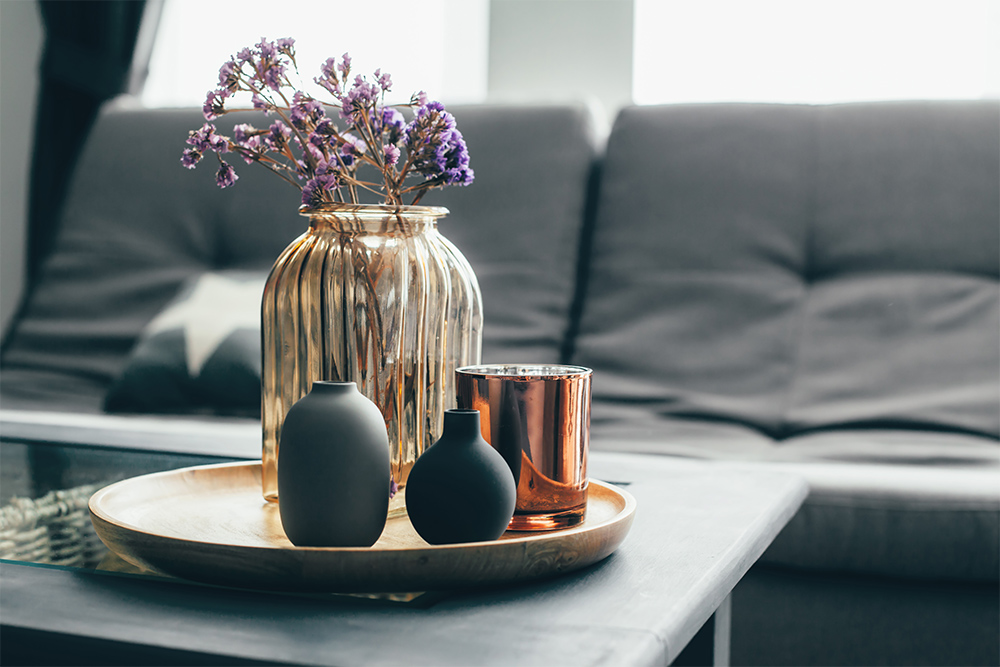Feng shui meaning
Feng Shui has been an art of living in China for thousands of years. For a few years now, the stressed westerners that we are have been infatuated with this philosophy where the singing of the birds, the rustling of the rivers, the breath of the wind seem to transform the daily life of everyone into a kind of therapeutic poetry.
However, as most of us are not lucky enough to have a mountain behind our house or a stream winding through our garden, we felt it was necessary to adapt Feng Shui to the Western way of life since the very principle of this philosophy is to live in harmony with our environment.
Application of its Feng Shui principles
Therefore, we have tried to simplify the method here so that it is as accessible as possible to everyone's schedule. Obviously, in order to achieve such a conciseness, we had to remove some of the complexities of Feng Shui and keep only the essential of the application of its principles.
In this site, we propose a very pure version that will allow you to take direct and efficient actions on your environment, and consequently on your life as a whole, without going into the details (and beliefs) of the oriental version which is more suited to the context of a rural life.
But first a few words about the origin of Feng Shui...
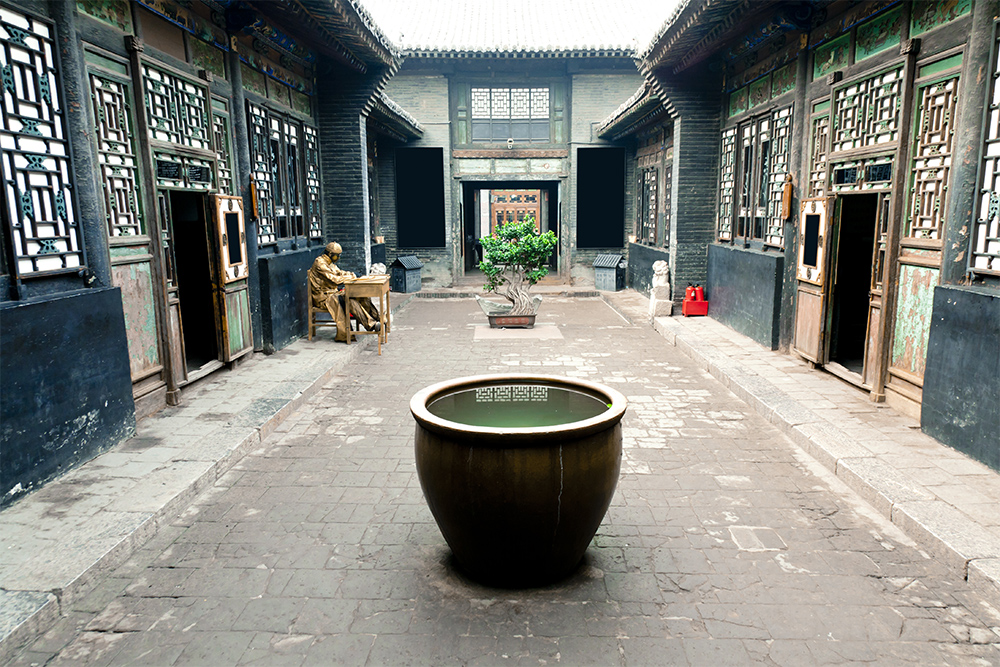
Origins of Feng Shui
The terms Feng and Shui mean Wind and Water. Several explanations exist as to the origin of Feng Shui but let's just keep this one as a poetic one and let historians and anthropologists debate the others.
More than 6,000 years ago, ancient civilizations were born on the banks of the Lo River in China. This region was precisely devastated by destructive floods that ruined both crops and homes.
One day, around 4000 B.C., a man named Fu Hsi reclaimed the banks of the river and suddenly the floods subsided.
While meditating along the banks of the Lo, Fu Hsi saw a turtle climbing the bank and was amazed at the pattern of black and white dots on its shell. Everyone knows that the turtle in some Asian countries is a symbol of eternal happiness, with great spiritual value.
Fu Hsi then noticed that the dots were arranged in such a way that their addition, vertically, horizontally or diagonally, always gave the sum of 15. This is what we call today the magic square.
It is the foundation of many schools of Feng Shui.
A philosophy of life
The Chinese considered Feng Shui as a philosophy of life allowing them to live in harmony with nature. In fact, all the architects of the great Chinese monuments, such as the Forbidden City in Beijing or the Great Wall of China, were inspired by the principles of Feng Shui to give their construction the harmonious breath necessary for their integration into nature.
The Feng Shui ideology
To apply the Feng Shui philosophy, two essential components must be taken into account: the notions of complementarity of Yin and Yang as well as the five elements (Water, Earth, Fire, Metal, Wood), often expressed through materials, shapes and colors.
It should also be noted that the whole Feng Shui ideology is based on Chi, which is the energy or the sum of the energy movements governing the universe.
The teachings
It is important to note the changes and mutations that Feng Shui has undergone over the centuries, especially during the Tang Dynasty (618 to 960 A.D.) and the Song Dynasty (960 to 1279 A.D.). Hundreds of schools of Feng Shui followed one another during these periods.
It will suffice for us to retain the teachings of those who base their calculations on the nine Ki. Its interpretation is the simplest and its working tools (the Pa Kua or Bagua, among others) are the best adapted to the Western world. Therefore, it will be the most understandable to our lay ears.
Moreover, we will not take into consideration Chinese astrology, in order to avoid weighing down the already complex exercise of the different combinations to be considered in order to obtain an adequate environment.
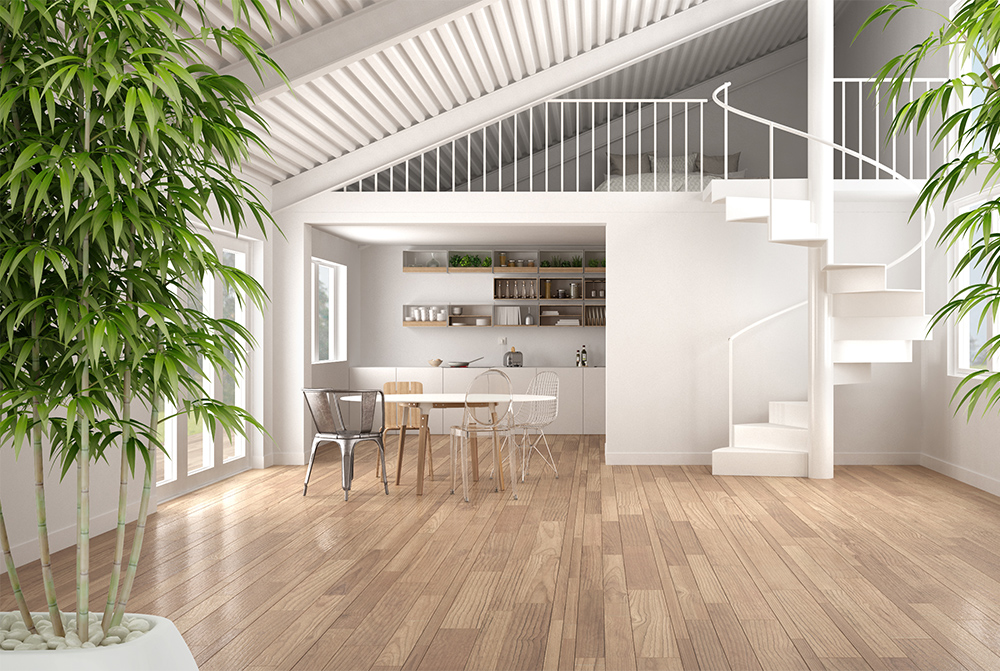
Occidental Feng Shui
Feng Shui teaches an ancestral method to reach physical, moral and intellectual plenitude by acting on the judicious arrangement of our living environment.
Feng Shui is neither a religion nor a trick. It is a specific method of thought based on the fundamental principles of Chinese ancestral thought (circulation of chi, Yin and Yan, theory of the five elements...) and thus overlaps with many therapeutic practices such as acupuncture, shiatsu or even martial arts such as Tai-chi, Yi-king, etc.
It reveals the common elements that bind man to nature and advises adequate means to enable us to act on the immediate environment. These methods enlighten the way of life of individuals in a different way and support them in their quest for stability as much for the access to happiness as for the resolution of problems.
They also allow people to better cope with the stressful life of our performance-based societies.
The sense of one's true values
Modern man often loses the sense of his true values, of his real needs. Feng Shui proposes to reconcile him with a certain simplicity as well as with a healthier attitude towards his needs.
By making a minimum of changes to the home to improve the atmosphere, the individual is provided with the means to make his living environment a filter that channels energy and protects well-being.
Creating a world in accordance with your expectations
Feng Shui also teaches how to take charge of certain aspects of one's life, how to build a sense of security, strength and joy. The individual will finally find the opportunity to meet more realistic needs and to create a universe in accordance with his expectations.
In this way, it will be appropriate to arrange the interior of one's home according to one's personality and thus regain a closer contact with oneself.
Occidental societies
The principles of Feng Shui are indeed perfectly adaptable in all Western societies. But it is important to translate it according to your reality.
If the Chinese items normally recommended by Feng Shui practitioners do not suit your lifestyle, you can simply replace them with objects of your choice that symbolize joy and positivism for you.
Be patient...
Moreover, the practice of Feng Shui requires introspection and patience. It is not necessary to change everything in a few days. Take the time to question yourself. Do your own inner work to identify what you want to change. Then go about it gently. Make some changes and observe the results.
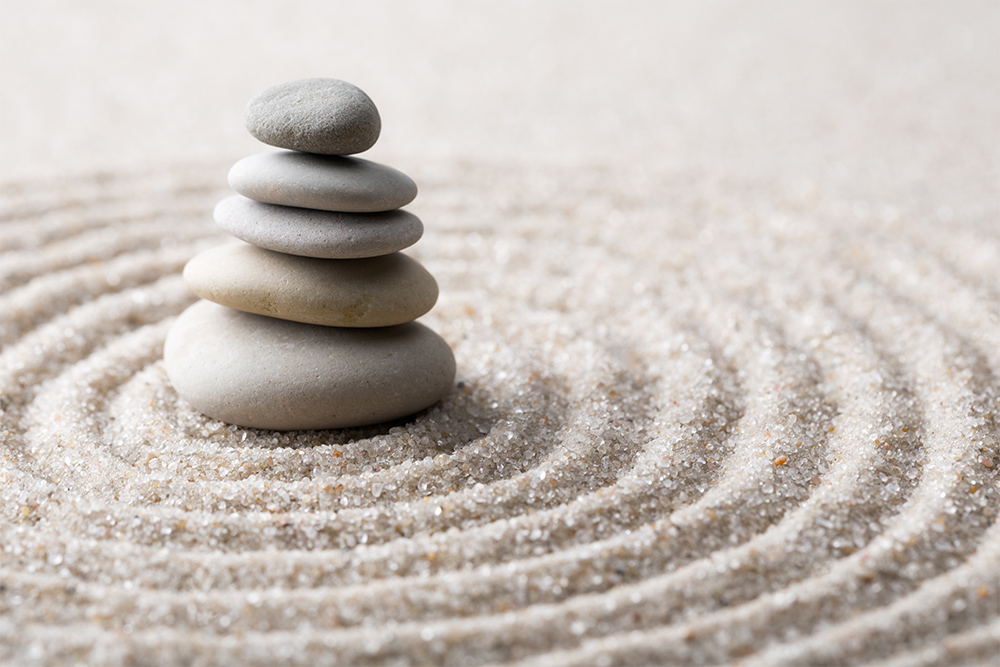
Finding balance with Feng Shui
According to the Feng Shui philosophy, everything is linked, everything that makes up the "I", i.e. the inner environment, finds its equivalent in the outer environment.
So everything around you, your health, your home inevitably reflect your personality. And any modification of a part, your house for example, will necessarily have an effect on you. And vice versa.
Positive thoughts and optimism will play a major role in the design of your home and in the way you perceive it.
Positive thinking
This is why Feng Shui recommends, among other things, to integrate in your environment objects that will embody your interests, your desires, your hopes and exert on your unconscious a positive force. It can be a stone, a souvenir of your vacations, a picture of your loved ones, a smell, a sound... in short, objects that you will have chosen in order to prolong this positive thought throughout the day.
A different approach
This implies that there is not one remedy but a multitude of remedies and solutions, and these are within you. Thus, if the practice of Feng Shui begins in books, it is above all based on a deep reflection and introspection.
The ideal is to offer yourself a complete overview, a journey to the heart of your personal universe which will force you to explore these small secret villages, often erased by the big inner cities.
Depending on your desires, whether you wish to improve your health, your career, your relationships with others or prevent discord, your approach will have to be different.
Essential questions
First of all, you should ask yourself the essential questions: what do you want to change?
First of all, in your inner environment, by exploring the different areas of your life that will later be inscribed on Pa Kua (professional life, wealth, relationships with others, family, friendship, children, knowledge and recognition). Then in your external environment, whether it is at the office, at home or in your garden.
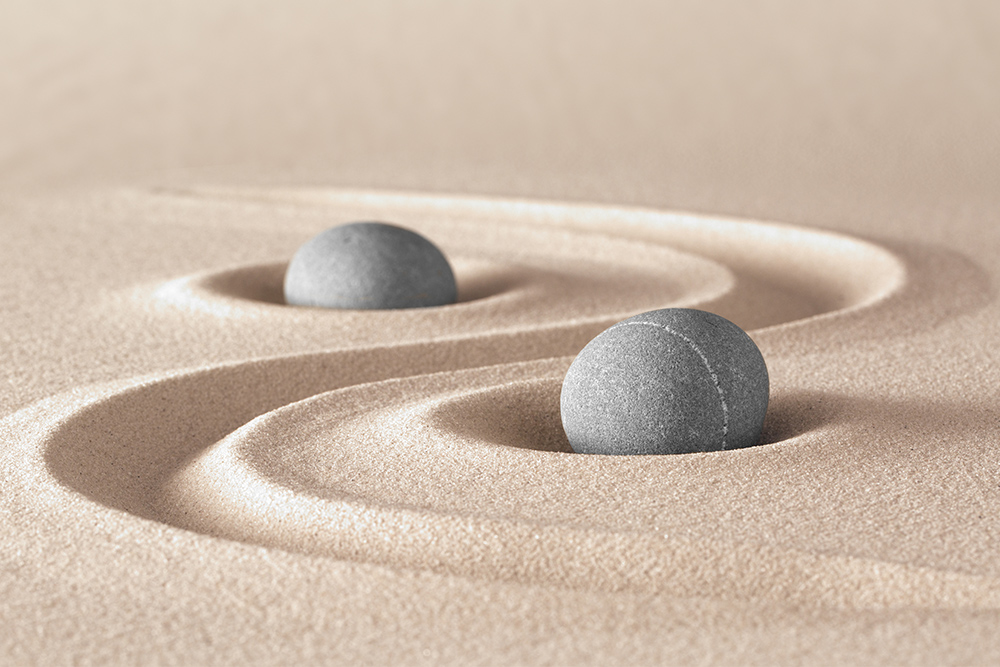
The Chi
The principle behind Feng Shui is that everything around us is part of a universal energy.
A subtle, immeasurable and limitless substance, which makes up the entire cosmos, circulates in the world around us, in our bodies and minds. It is called Chi (pronounced "tchi") in China, ki in Japan and Prana in India.
Let the Chi circulate
The purpose of Feng Shui is to make sure that this vital breath circulates in an optimal way inside and outside of us. From this good circulation will come an attitude, thoughts and positive feelings directly related to our health, our family and professional life.
It is therefore essential to make sure that the Chi flows smoothly and gently inside your home. Sharp corners, deep recesses and cluttered spaces are all energy blockages that can generate ills and dysfunctions in your life.
This notion of free flow of energy is not exclusive to Feng Shui.
Borrowed from Chinese philosophy, it is also one of the foundations of certain age-old Chinese therapies such as acupuncture or shiatsu. Both therapies are based on the principle that the mind, the body (the different organs) and the direct environment of a person form a whole and that any disorder, whether psychic, physical or external, is likely to disrupt the energetic balance of the person, causing illness or discomfort.
By stimulating specific points, they act subtly on the energy flows in order to remove blockages and allow the energy to circulate freely and harmoniously in the body and mind.
Like the flight of birds, streams, in short, nature, the Chi must circulate in wide and undulating movements in your home. To find out what is happening in your home, here is a simple test of the circulation of Chi in your home.
Take a rough plan on which you will place all the elements (furniture, appliances, accessories, etc). Use a pencil to move the Chi from room to room in a ring-like pattern and take note of each space that is cluttered, too dark, too large, too small, unused, etc.
From this analysis, together with that of your needs, will naturally follow the outline of your future layout. For each piece of furniture, each object cannot be considered solely in terms of Chi. This space is yours and for you to feel good in it, it is important that it responds to your needs as well as to the needs of a good circulation of energy.
The Shar Chi
Note however that the energy flowing through your walls is not always beneficial. Feng shui refers to this bad energy as Sha or Shar Chi.
This "breath that kills" generally manifests itself around anything that is not "natural": long straight lines, sharp angles, L-shaped furniture, sharp objects; anything that is too dark: deep corners, poorly lit spaces; conversely anything that is too bright: road signs, street lights; anything that is too cluttered: hallways, untidy closets,...
In short, any place where the Chi does not circulate well. This hostile energy is at the origin of discomfort, illness and dysfunction.
It is thus advisable not to expose oneself to it for too long by opposing it with the appropriate remedy. For example, by hiding the edges of the walls or the corners of the furniture behind plants or with decorative accessories with opulent curves.
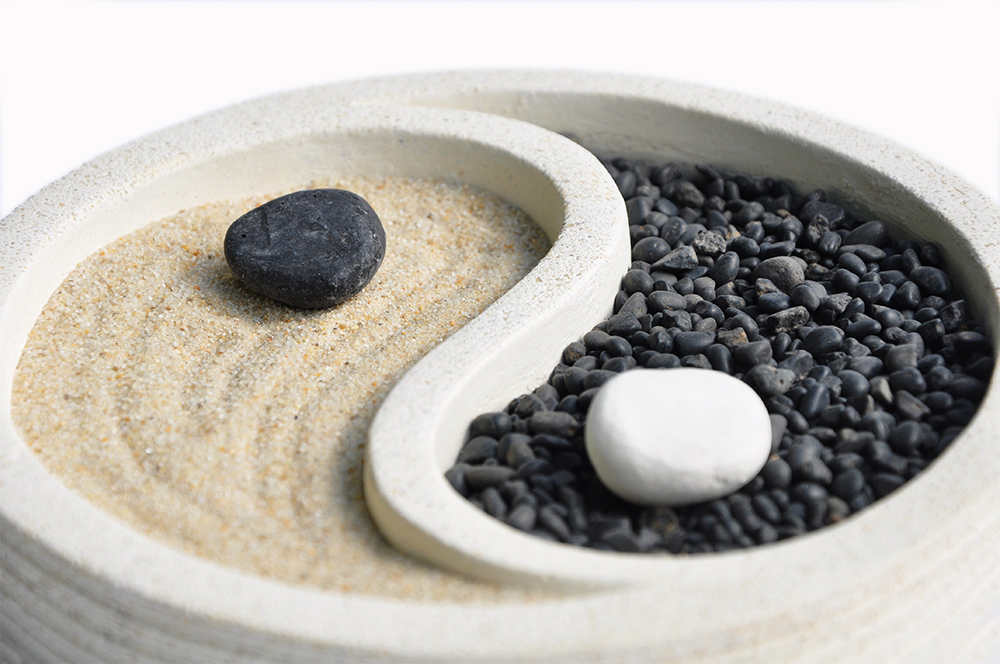
Yin and Yang
Another essential basis of Feng Shui is the balance of the contradictory impulses of Yin and Yang.
That of Yin: feminine, dark, cold, passive, wet, cloudy, soft, negative, wavy, underneath, downwards,... and that of Yang: masculine, luminous, warm, penetrating, dry, hard, positive, geometrical, above, upwards,... More generally, Yin is the one that relaxes, opens the mind, stimulates the imagination, it is the creative side, supple, easy, flexible, while Yang is active, precise, assured, tense, fast.
Yin Yang: For the harmony of a whole
Yin and Yang are in a way the two sides of the same element or world, the necessary and complementary opposites for the harmony of a whole, just like earth and sky, darkness and light, moon and sun, death and life.
The symbol of Tai Chi But if everything is not black or white, know that everything is not Yin or Yang either. In each object, each place, each person, there is again this balance between Yin and Yang. This concept is illustrated by the Tai Chi symbol: Yin contains a little Yang (white dot on the black surface) and Yang contains a little Yin (black dot on the white surface).
For your inner life
In your inner life as well as in your outer environment, in this case in your home, it is therefore essential to achieve this balance between Yin and Yang. For example, the furniture and accessories of each force must be balanced: a wooden cupboard, a mirror and metal accessories (Yang) with curtains, cushions, a carpet (Yin).
The accumulation of objects of the same force would contribute to the energetic imbalance of the room. It is therefore necessary to restore the balance by accentuating the dominated aspect.

The five elements
Like Yin and Yang, the theory of the Five Elements was born from the Taoist teaching.
The theory of the Five Elements is an ancient philosophy based on the observation of nature, its functioning and its perpetual changes. Indeed, nothing is static in nature, everything evolves and transforms permanently. Thus, the seed (Yin) becomes a plant (Yang) which dies and returns to the earth (Yin).
The theory of the Five Elements
The theory of the Five Elements allows us to describe these processes, these transformations that we can observe in nature. The five elements are Wood, Fire, Earth, Metal and Water. But none of them is entirely Wood, Fire, Earth, etc. Just like Yin and Yang, they are defined in relation to each other. Each element is interdependent, creative or destructive.
This unbreakable relationship between each of the elements is illustrated in the form of a cycle. If each element feeds the next, it is called a "cycle of creation" or "cycle of generation"; if they interfere with each other, it is called a "cycle of control".
The creation cycle and the control cycle
The cycle of creation describes the relationship between the different elements and the harmony with which they are nourished.
The cycle of control is exercised in conjunction with the cycle of creation. It specifies the obstacles that certain elements can exert with respect to others.
A little abstract at first glance, these two cycles can be explained in a very simple way by nature and its cycles. Each element is also associated with a period of the day and a season, allowing us to have a more concrete idea of the kind of energy it carries.
1. Wood
Wood nourishes Fire and controls the Earth (rooting of the plant). It is associated with sunrise and spring. Just as the plant emerges from the ground to seek the light, the energy of Wood is ascensional. It is that of expansion, of opening outward.
2. Fire
Fire nourishes the Earth (ashes) and controls Metal (it can melt and deform it). It is associated with the middle of the day and with summer when nature blooms and draws strength from the sun. Fire energy is active.
3. Earth
Earth nourishes Metal (metals are extracted from its entrails) and controls water (by damming it). It is associated with the afternoon or summer sliding into autumn. It is the time of the harvest, of the last rays of the sun. Earth's energy is in a loop, gathering.
4. Metal
Metal nourishes Water (metals give water all its properties: minerals, trace elements,...) and controls Wood (by cutting it). Just like plants that are concentrated and give back to the earth their fruits, the energy of Metal condenses. It is turned inward.
5. Water
Water nourishes Wood (the tree needs water to grow) and controls Fire (water extinguishes Fire). It is associated with night and winter; with the rest of nature which is filled with energy to be reborn in spring. The energy of Water is fluid, calm.
The information provided by the Theory of the Five Elements
In a concrete way, the Five Elements inform us about the circulation of the vital energy or Chi and about the kind of energies that surround us. They therefore help us to make the best use of these energies, to distribute them better according to whether we wish to give a room a rather calm, creative or energetic atmosphere... But in all cases we must always seek balance.
The Five Elements must always be present together and in harmonious proportions. The privileged elements should not manifest themselves too strongly in order not to break the balance and risk harming the good circulation of the Chi.
It is also important to take into consideration the character of the person in order not to exacerbate in the external environment an element which is already very marked in his personality. For example, in the interior of a person with a dominant Fire character, red tones, sharp objects and too much Water Element should be avoided because water extinguishes fire.
Conversely, in the case of a sad person, not very expressive, where Fire is insufficiently present, one will opt for bright lighting, red objects,... while avoiding, once again, excesses of the Water Element.
The creation cycle and the control cycle give us the keys to maintain this harmony. By reinforcing an element that is too weak by the one that nourishes it; by compensating an excess of an element by the one that controls it.
Here again it is important to ask yourself the right questions. About yourself and your inner self. Which element do you relate to the most? What are the colors and shapes that dominate your interior? What atmosphere do you want to give to each room in your house? And above all, let your intuition do the rest.
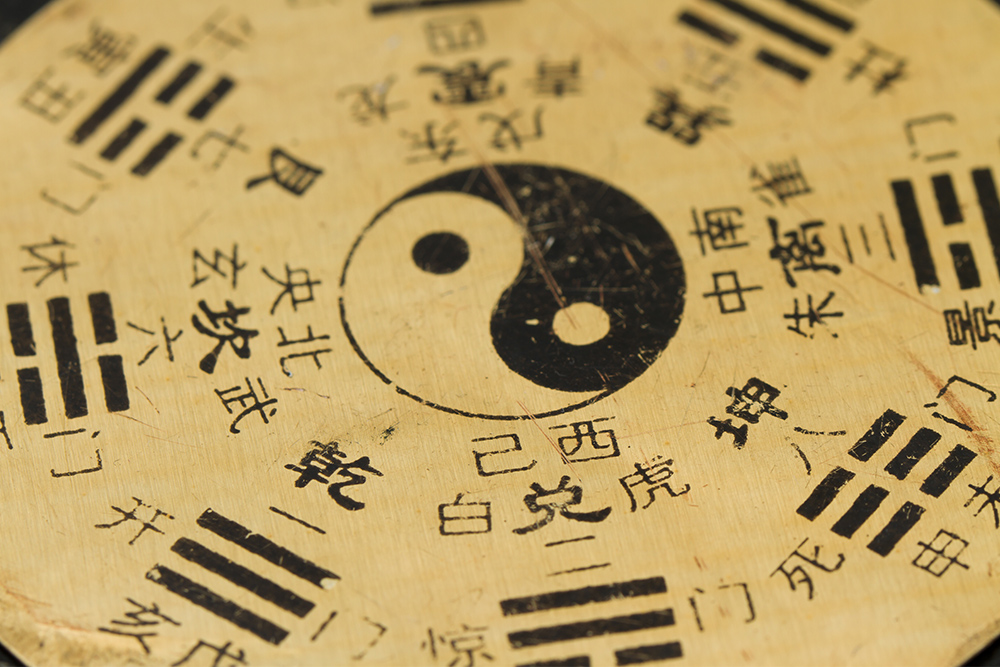
The Pa Kua
The Pa Kua (or Bagua according to the translations) is one of the essential analysis tools of feng shui.
If your home were a human body, the Pa Kua could be likened to a CT scan that analyzes it for small anomalies or obvious weaknesses.
A tool for analysis
Each part of a living organism must function properly to maintain the harmony of the whole. In the event that one element is defective, its neighbors momentarily take over to compensate for the deficiency, but it goes without saying that if the problem persists, the entire system will lose its balance.
The Pa Kua will help you identify the weakest (or strongest) areas of your home in order to take the appropriate actions to transform your environment.
The Pa Kua is composed of eight trigrams with eight cardinal points: north, south, east, west, northeast, northwest, southeast, southwest. In addition, each of the trigrams also represents one of the eight Aspirations of the life field: Wealth and Prosperity (South-East), Recognition and Fame (South), Marriage and Love (South-West), Children (West), Mentors and Communication (North-West), Career (North), Education and Knowledge (North-East), Family and Health (East).
Once the Pa Kua is placed on your house plan (as in the case of the Pa Kua), each sector of the Bagua can be activated by a different Element which we will call "remedy".
The interpretation of the Pa Kua
The Pa Kua can also be presented in the form of a magic square, composed of nine identical squares and each of these squares represents an area of your life. This version is simpler to use and generally fits better in our square or rectangular constructions.
The accessories in a room will embody different symbolism depending on the area in which they are found. You must therefore analyze each situation very carefully and make sure of the moods you wish to create in each room according to its position on the Pa Kua.
Do not forget to take into account the shape of the objects, the color of the walls and floor coverings, the symbolism of the images in order to maintain the balance between the Elements, the balance between Yin and Yang.
You should also know that the Pa Kua must be interpreted with great flexibility. If the Human Relations box is located in your house in a place that would normally have catastrophic consequences (the cabinets, for example) and this is not the case, remember that the individual energy of each person also counts a lot in the harmony and circulation of the Chi. It is possible that you are giving off enough positive energy that your environment, even if it is inadequate, does not suffer from these problems.
We recommend that you do not unnecessarily change what you feel is a winning formula. Only focus on changing the things that annoy you.
How to use the Pa Kua
To use the Pa Kua as an analysis tool, first draw a rough map of your home. Then take a tracing paper on which you will lay out the nine domains of the Pa Kua as positioned in the table above.
Adapt the dimensions of the domains to those of the place you want to analyze, whether it is a room, an apartment or a garden. The Pa Kua should be placed so that the main entrance door is in one of the following areas: Knowledge, Professional Life or Friendships. The front door is the starting point of the Chi and influences the way the energy will spread afterwards.
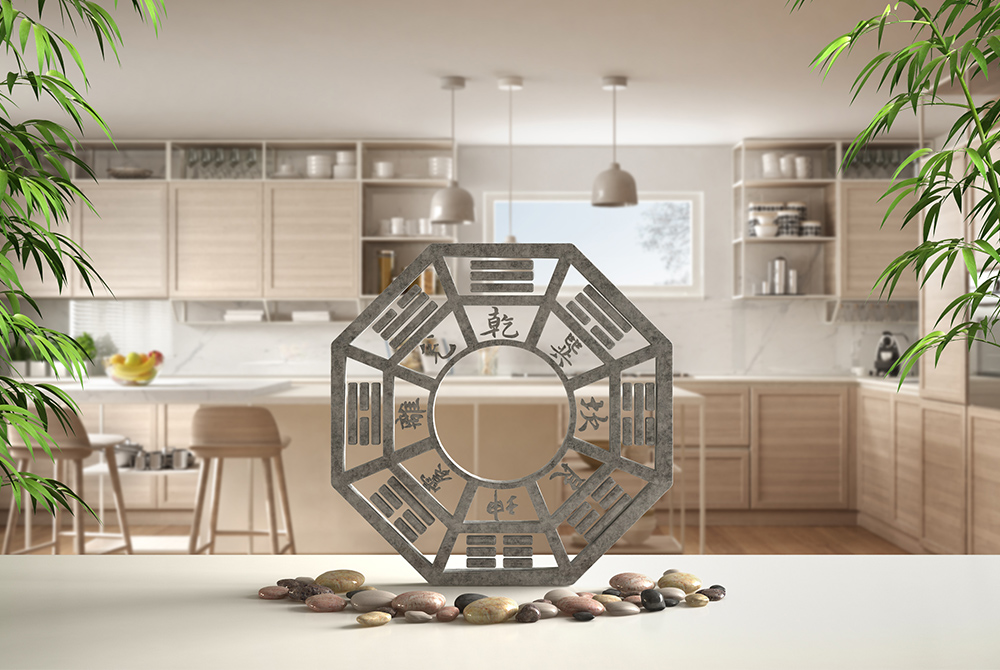
The Pa Kua or the Nine Domains
The Pa Kua or the nine domains The Pa Kua represents the eight sectors of life grouped around a center.
1. The future, professional life
This area must be designed according to your deepest desires. It must reflect your professional ambitions. Provide it with an adequate and welcoming lighting. Make it a friendly and spacious place. Install your seat with your back to the wall and facing the door to give you a sense of security and to never be caught off guard. Indoor fountain, aquarium or waterfall images will be adequate in this area.
2. Prosperity
This area represents both your financial situation and the idea of your own worth. It would therefore be appropriate to introduce symbols of nobility and exception, symbols of external and internal wealth. Crystal or cut glass cups or any other open container should be placed in this space so that wealth can gather. Aquariums and fountains will also have their place here. As well as healthy plants, but avoid sharp leaves or thorns...
3. Relationships with others
This area symbolizes your relationships with others, i.e. your love relationship as well as your friendships, professional or social relationships. You must therefore consider a harmony that is appropriate in order to maintain good relations with others and open as many doors as possible socially. Nothing must represent discord, breakage, rupture.
Be careful in the choice of your images and your decoration accessories. Use warm colors that will create a comforting atmosphere, a taste for closeness. Use symbols of union, pairs of objects. The furniture should be comfortable and encourage tenderness. Do not hesitate to make this room a love nest in which you will always be happy to enter.
4. The Family
An essential area since health and family are the pillars of any happy life. It is therefore essential to correct clutter, poor lighting or the presence of several walls. Make sure it is clean, tidy and cheerful. Conceal sharp corners behind large, vigorous plants. Family portraits or objects that connect you to your past, as long as they bring back happy memories, are welcome in this area. So are wooden objects, plants or flowers.
5. The TAI CHI Center
The center of vitality (Hara) is the one from which we draw daily the resources necessary for the regeneration of our forces. This area should remain as open and uncluttered as possible. We could say that it has digestive properties and that it is advisable to feed it properly without overloading it. It is important not to have walls, chimneys, heavy furniture or stairs. If any of these elements are present, correct the situation by placing rainbow crystals, pieces of rock crystal or spirals.
6. Friendships
You must make this area the embodiment of your generosity to others. It must give off an energy of support, help and protection. This will be the place of providence, chance and the guardian angel. To call forth this energy, you must know how to give. Decorate this room with minerals, semi-precious stones and different crystal objects.
7. Children, creativity
This is the area of projects, ideas, imagination, inspiration. Place images and objects that evoke the pleasures of life, your secret joys. Make it your little corner of madness, your universe of all possibilities. The colors could be brighter and the place will lend itself wonderfully to the exhibition of works of art, to the diffusion of harmonious music and to cut flowers. The ideal area to install the playroom or children's rooms.
8. The Knowledge
The ideal place for a library. This area is indeed conducive to the acquisition of knowledge. It requires calm and regularity. It is in the silence that deeply buried information comes back to consciousness. Also, you can make it your meditation sanctuary. Use soft colors that will encourage inner peace and give this room a slight Yin bias.
9. Recognition
This area is about reputation and self-esteem. It is therefore important not to neglect the design of this area and to think carefully about the objects that will be placed here. It must be the herald of your inner maturity and go in the direction of a continuous progress of your person to maintain your external prestige. It will help you to access knowledge and inner wisdom. Should this area be lacking on the Pa Kua, it could result in various image problems or lack of optimism.
Make sure that the light is good so that it brings you inspiration. Artists' paintings and objects symbolizing clarity are welcome. On the other hand, a moderate use of red should be respected.
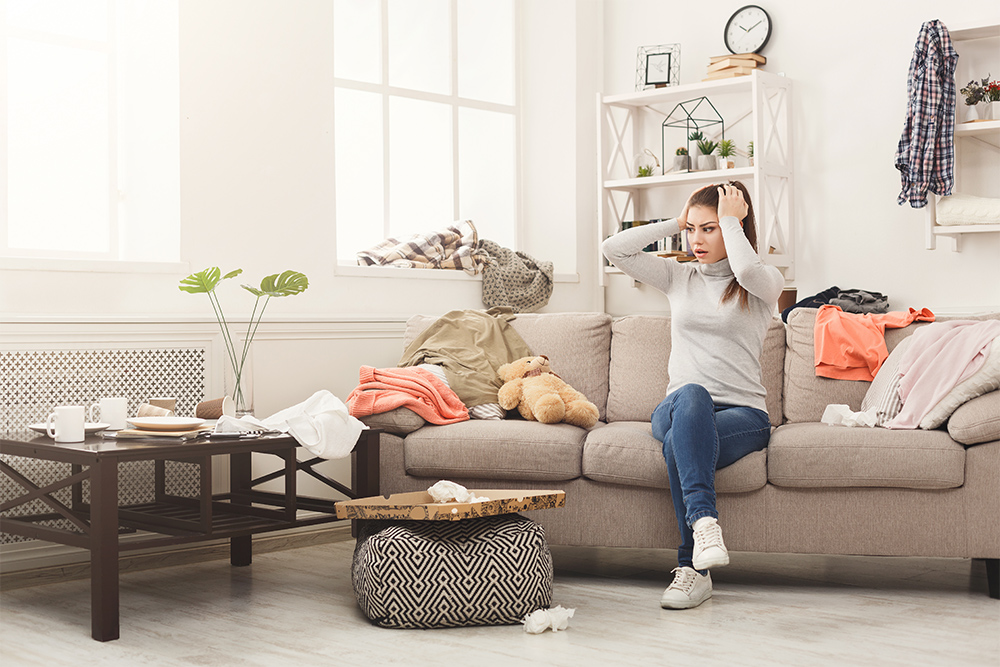
A clean place
You have certainly already understood that Feng Shui is the enemy of everything that is not curved, clear, harmonious, clean, light, etc.
Feng Shui hunts down sharp corners, gloomy or unfrequented areas, old things, dust, even ghosts. We will see how it is possible to transform your home into a haven of peace and harmony with a few simple changes and without investing huge sums of money (which most Feng Shui consultants do not take into consideration).
It all starts with a thorough spring cleaning to renew your energy field and that of your home.
Step 1: Cleaning
We move the objects, the furniture and we dust the least corner. Don't forget to shake the carpets, the cushions, to wash the curtains. And why not the walls if you feel courageous enough. Degrease your kitchen, the cupboards, the utensils, behind the appliances,... And above all, don't forget to air generously each room of your house so that a new energy fills your home... and your heart. The large households have indeed this power to fill you with a new energy. It's as if we're clearing away our frustrations, as if we're starting something new, a renewal of sorts. Then, when everything is clean, before tidying up, do a big sorting...
Step 2: Tidying up
Because what makes the Chi stagnate is the disorder. We therefore get rid of useless junk such as newspapers, magazines, old clothes, old dishes, useless furniture or knick-knacks whose only use is to accumulate dust. Ask yourself about the usefulness of each item and take the opportunity to do a good deed by offering the items you no longer use to a charity. And if you're not sure, ask yourself when you last used the item in question. After a year, give it away... and to hell with "you never know... I might need it..."!
File your things, your papers. Get yourself some nice storage boxes that you will carefully label. A motto: everything in its place and a place for everything. It will take you a little time but imagine the time you will save when you will look for the roll of tape, your sunglasses,... Not to mention the satisfaction of seeing your house tidy!
Step 3: Some general arrangements
Here are a few changes that will considerably improve the circulation of Chi. Avoid the harmful effects of electromagnetic radiation: Keep your resting places away from all electrical appliances, sockets and switches in order to limit the nuisance caused by electromagnetic emissions which are often the cause of insomnia, headaches and other symptomatic illnesses. In other words, no television sets in the bedrooms, or in the dining room for that matter, which could harm your digestion.
Camouflage corners: Any protruding corner, of a room or piece of furniture, will generate tumultuous energy around you. This can be especially distracting in sleeping areas. It is therefore important to soften them by installing for example a plant, a screen, a decorative ribbon,...
Conversely, corners tend to retain energy. It is thus advisable to stimulate it with a plant with pointed leaves, suspended or on the ground, a small lamp or a sound object like a loudspeaker. But above all, avoid accumulations and installations that could weigh down the space.
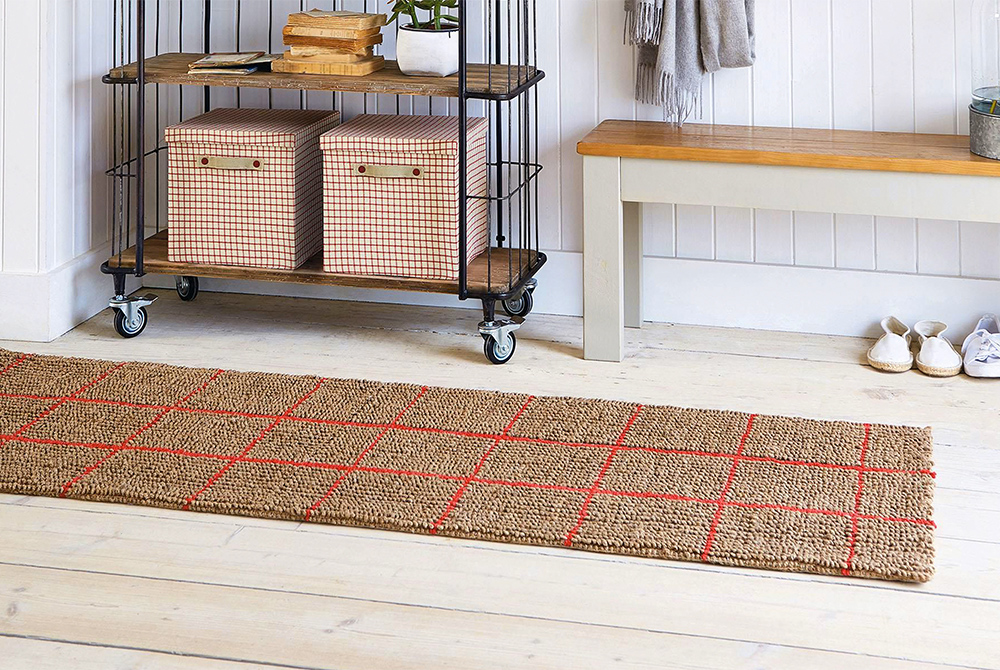
The entrance, the vestibule
Let's start at the beginning, the entrance. Not only a place of passage, it is also an opening to the rest of the house. It is the first and last room your guests will see.
It is therefore advisable that, however small it may be, the entrance is clear, welcoming and orderly since this is also where the Chi enters.
A mirror placed on a side wall to enlarge or open up the room (especially not in front of the door so as not to make the Chi leave), paintings giving an impression of depth such as landscapes (don't hesitate to play with their arrangement), rounded furniture (avoid sharp or triangular objects as much as possible), a sturdy plant, a carpet that will add color and texture to the room, as well as a set of lights that will allow you to illuminate according to the circumstance: friends or inappropriate strangers.
Get rid of everything that is superfluous and cumbersome. Arrange a space where you can put shoes and coats so that they do not pile up in the entrance. And above all, keep the space nicely decorated and tidy at all times.
The room that the entrance opens onto is also important. If it's a room you don't like (it could be the bathroom or a storage room, for example), keep the door closed and hang a mirror or something bright that reflects the Chi.
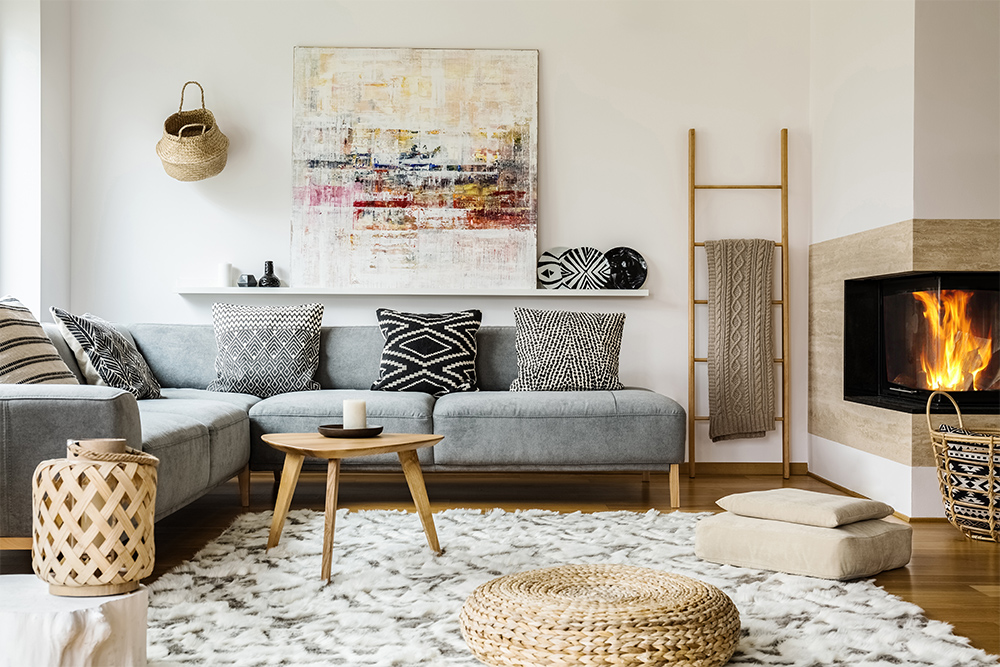
Living room
The living room is in a way the public face of the private life since it serves as a meeting point for the whole family but also as a reception area for guests.
Generally quite large, this privileged room should preferably be located not far from the entrance door in order to benefit from a maximum flow of Chi. It should be comfortable with cozy seats, an intimate atmosphere that encourages conversation, welcoming, well lit with warm colors.
Let the Chi flow in a fluid way
As a place of relaxation, the living room will not support any clutter or overabundance of things in order to let the Chi circulate in a fluid way. Avoid anything that could attract Shar Chi, plants with pointed leaves near the seats, triangular objects, furniture with sharp angles... Or mitigate them by means of plants, tablecloths,...
If the room is large, think of dividing it with plants or screens to prevent the Chi from getting lost. Conversely, if it is too small, avoid overloading it. Prefer low furniture and soft colors that enlarge the room.
Wellness and comfort
In the living room, well-being and comfort are the key words. So choose comfortable armchairs and sofas with rounded shapes. Arrange them around a central point (coffee table, fireplace...) - but never with your back to the door - to facilitate conversations and friendly relationships.
If however the shape of the room obliges you to have a sofa in the center of the room and not leaning against a wall, place some object behind: a plant, a lamp, a small table,...
The fireplace
Fireplaces contribute to this feeling of well-being, warmth and by the light of the fire, energizes the room but it is necessary to use them regularly. If they are no longer in use, place plants or heavy objects on either side to prevent the Chi from being dispersed unnecessarily through the conduit leading to the outside.
The lighting
Lighting should be flexible and pleasant. Reserve the possibility of a bright light for discussions or decision making; a subdued light for intimacy and a potential light for the reading corner.
The colors
Play with colors and textures in curtains, pillows, plaids and decorative objects. The diversity and balance of textures will bring warmth and dynamism while being very pleasant to the sight and touch. Choose soft and velvety materials for seats in contrast with hard and shiny objects such as vases, statues,... On a wooden table, think of leather, etc.
As for the color of the walls, we will favor soft colors. Shades of yellow, ochre, cream, beige that promote conversation and harmony. But, once again, you remain the best judge for this option. Don't forget to play with the colors and textures of the different elements of the living room: curtains, cushions, plaids and decorative objects.

Kitchen
In any kitchen, simplicity and warmth should be the order of the day.
At the center of domestic activities, it is the place where the meal is prepared, where we discuss and where we meet as a family. And often the place where the meal is served. According to the principles of Feng Shui, the kitchen is associated with food and therefore with Fortune, Health and Family. This makes it one of the most important rooms in the house.
To feel good
For practical reasons, it is important that the space is well arranged. You will avoid unnecessary and irritating movements. Moreover, the Chi will circulate better if it can meander between the different blocks of elements. The person who prepares the meals must feel comfortable and secure. The worktops should therefore be oriented so that the back is not turned to the door and the room can be seen at a glance.
Clear work surfaces
Make sure your work surfaces are clear so as not to slow down the Chi. Hang as many utensils as possible, organize your cupboards and avoid unnecessary gadgets by choosing your accessories carefully.
Materials
When it comes to materials, anything goes. The main thing is that the whole is balanced. Avoid too many elements of the same material, for example wood and parquet. A stone floor would be more appropriate in this case. Tiles also allow the Chi to circulate very well even if it is perhaps colder under the feet. So choose warm colors and textures.
The colors
Note that light colors like yellow or dark brown tones charge the food with friendly and invigorating energy. Off-white is also appropriate as it symbolizes purity and clarity.
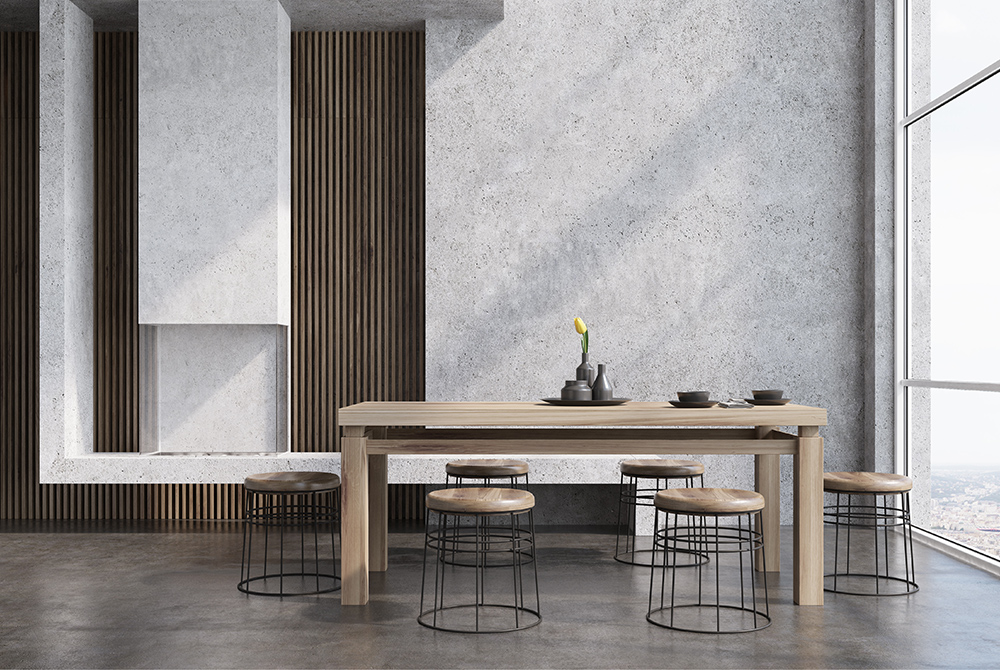
Dining room
The dining area, whether it is in the kitchen, living room or dining room, is a place to relax and enjoy sharing words and meals with family and friends.
Forget the traditional dining room that is only used for special occasions. This room should be a place of life, a living space in the heart of your home, ideally between the living room and the kitchen. Practically speaking, this room - if the dining area is not in the kitchen - should be very close to it.
Reduce to the essential
In order to bring relaxation and well-being, the dining room must be clear, orderly and the furniture must be reduced to the essential: a table preferably with rounded shapes or covered with a tablecloth, comfortable chairs, possibly a sideboard. In short, neither too bare nor too busy. Avoid too many materials such as glass or chrome that would cool the atmosphere (especially glass tables that leave an impression of emptiness and floating).
Decoration and colors
For decoration, choose mirrors, paintings, candles, plants and good lighting (crystal chandelier).
In the center of the table, think of putting a square object if your table is round and a round object if your table is square or rectangular. Finally, cheerful colors will whet your appetite and contribute to the pleasant atmosphere of the room.
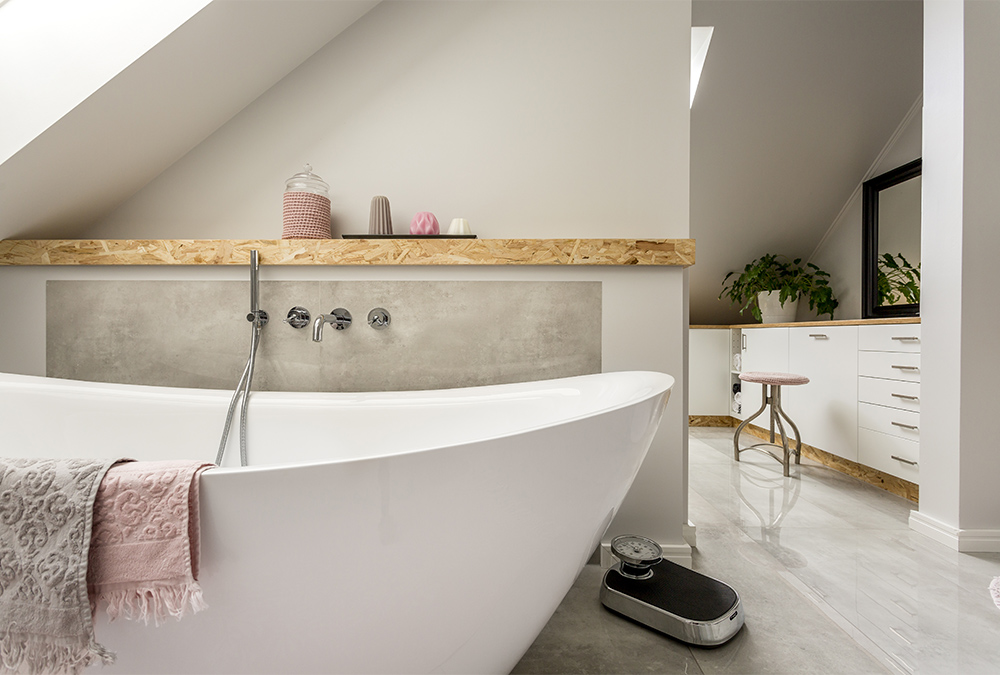
Bathroom
The bathroom is a space where we pamper ourselves, where we take care of our body as well as our head.
It must therefore inspire relaxation and well-being. Whether you are a fan of long relaxing baths or quick and energizing showers, you must feel in harmony with this place.
Dare colors, dare materials
Indulge yourself, let your imagination run wild. The bathroom, although often small, lends itself more easily than any other room to decorative audacity. So make this space your own by giving it the style that suits you.
Pastel tones (pink, green, blue...) or neutral tones (cream, ochre, yellow...) are generally preferred, but you can also play with contrasts by using dark colors on the walls to bring out the white of the bathroom or by enhancing the color of the walls with brighter accessories. Anything is possible as long as it meets your aspirations and you feel good about it.
Well-ventilated to prevent Chi from stagnating
As the bathroom is the most humid area of the house, it is important that it is well ventilated to maintain a healthy atmosphere and prevent Chi from stagnating. In addition to an efficient ventilation system, plants can also help reduce humidity.
However, keep the door closed so that bad Chi does not spread to the rest of the house, especially if the bathroom opens directly into another room, such as the bedroom. Finally, be sure to lower the lid of the toilet when you flush so as not to drive the Chi away.
If you are lucky enough to have a window, air out regularly. If not, create the illusion of space with a mirror hanging on the wall.
A simple decor
Already slowed down by the ambient humidity, it is important not to create other obstacles such as clutter, dirt, too many objects and furniture. Any material that can accelerate the flow of Chi should also be favored: mirrors, tiles, etc. The key is to achieve a balance between the various materials.
The light
Light will also help to stimulate the circulation of Chi. Prefer halogen spotlights in ramp or recessed allowing an adjustment of the intensity according to your needs. Think also of candles, especially when you are lounging in a bath.

The bedroom
The bedroom is an essential room where we recover from our daily work.
For a moment of relaxation, a little nap or a good night's sleep, which is essential to maintain good physical and mental health. It is the room where we spend the most time, more than a third of our lives.
A restful and enveloping atmosphere
Because it is your place of rest and renewal, its atmosphere must be restful and enveloping. Everything should evoke softness and mellowness: colors, materials, even the bed, which should be comfortable but firm. The bedroom is also a place of intimacy where partners meet. It is therefore essential that there is harmony.
We will therefore avoid any disorder and will reduce the furniture to the strict minimum so that the Chi can circulate freely in the room. The furnishings as well as the layout should be harmonious. And although we will seek as in other rooms the balance between Yin and Yang, we will emphasize the Yin energy by giving preference to soft and light materials that will promote a restful sleep.
The bed
The location of the bed is essential. Choose the most harmonious place in the room. Never between the door and the window, as far away as possible from these two exits, the head against a wall and avoid placing it under a window. If necessary, close it with curtains or blinds.
The furniture
Furniture should preferably be rounded, light-colored and placed at a certain distance from the bed. Avoid hanging cupboards or open shelves above the bed as they promote Shar Chi by giving a feeling of heaviness. Keep electrical appliances, fountains and aquariums as far away as possible, as well as mirrors that may disturb your sleep.
If your room is adjacent to a bathroom, keep the door closed so that the negative energy of the bathroom does not invade the room. If your room is small, avoid plants that can disturb your sleep at night.
The lighting
The very Yin atmosphere of the bedroom must also be found in the lighting, soft and subdued. Opt for dimmers that allow the desired intensity or for lampshades that dim the light. You can also cover them with light materials like silk. Candles will also add a note of sensuality beneficial to intimate relationships.
The colors
The colors will be warm and harmonious, the patterns soft and vibrant. Dynamic colors such as red, orange or bright yellow should be avoided. As for decoration, choose images that will bring you calm and joy. Above all, don't introduce anything into the room that is related to your professional activity. This space is the one of relaxation, preserve it.
The walk-in closet
Walk-in closets are rooms in their own right on the Pa Kua. Light them adequately, air them well. You can even perfume them with scents you like, vanilla for example. Make sure to stimulate the Chi in them with accessories that have these properties and above all don't make them a storage room.
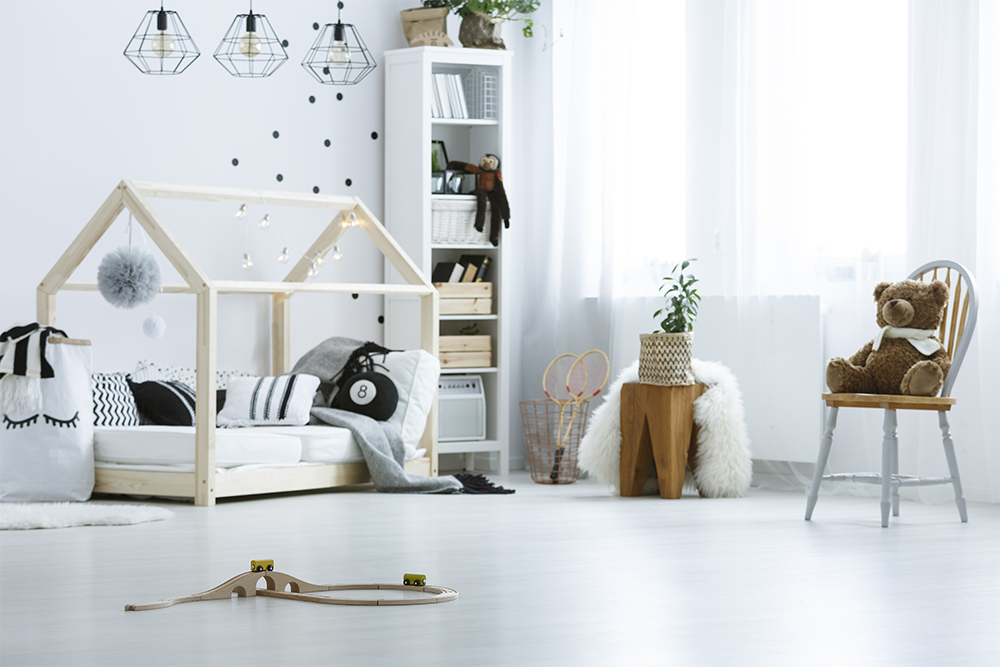
Children's room
A playroom during the day, a resting place at night, the children's room must give off an atmosphere of both freedom and security. Children must feel safe in this little universe of their own.
Like any room dedicated to rest, it is important that order be maintained so as not to block the flow of Chi. Choose light, colorful and accessible storage for your children. Teach them to put their things away before bedtime. They will only have better dreams. Avoid piling up things under the bed.
The bed
Like the parents' bedroom, the bed should be placed in the most harmonious area of the room, at a distance from the window and the door and avoiding placing it under a window.
If the room is very small, consider a high bed with drawers and shelves underneath. But avoid beds that are too high and too close to the ceiling. It is preferable to choose natural wood, as well as furniture, with rounded shapes. You will favor the Chi and also avoid big boo-boos.
The play area should be clearly separated from the rest area so as not to disturb the child's sleep. The desk, if there is one, should be well lit and give an impression of stability. This way, the child will have his back to the wall and can see the whole room at a glance.
A décor to suit their tastes
Children love to have their own space. It is therefore important to decorate it according to their tastes, their preferences and their personality. Generally speaking, however, we will opt for delicate colors. Colors that are too bright tend to irritate.
On the other hand, they can be used in touches in the decoration elements or to raise the plainness of the walls with friezes or stencils representing motifs that the child likes.
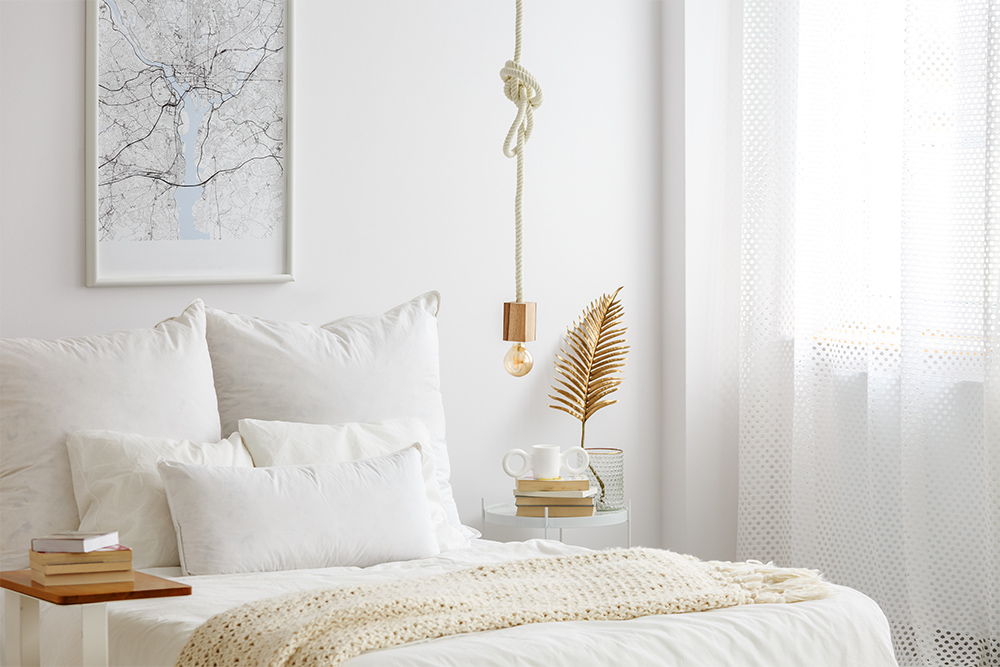
Guest room
If your house allows it, and if the need arises, reserve a room for your friends. your friends. The notion of friendship being very important to the balance of your life.
Do not turn into a storage room
This room should not be turned into a storage room, as this could accumulate Shar Shi and cause harm to your relationship.
A used room
Similarly, if it is hardly used. It is better in this case to use this room for yourself, a small cocoon in which you can indulge in the pleasures of relaxation or an activity of your own.
The Renommé area
Ideally, the guest room will be located in the Renommée sector. It will be welcoming and comfortable.

Office
The office is a place of work, whether it is dedicated to your professional activity or daily paperwork. It is therefore important that everything in this place calls for concentration.
Set up your desk in the most harmonious space in the room. Not facing the window (this dissipates the Chi), nor facing a wall (this blocks the Chi).
You should also avoid anything that might attract attention, such as a nice picture right in front of the desk, too many gadgets within reach, etc.
Office furniture
Sober, the furniture will however have to meet your storage needs. Avoid open shelves that attract dust and bad Chi (unless it is a bookcase).
Prefer cupboards in which you will organize your archives, books, stationery, etc. Your desk should be kept clean and tidy so that your thoughts are clean and tidy too.
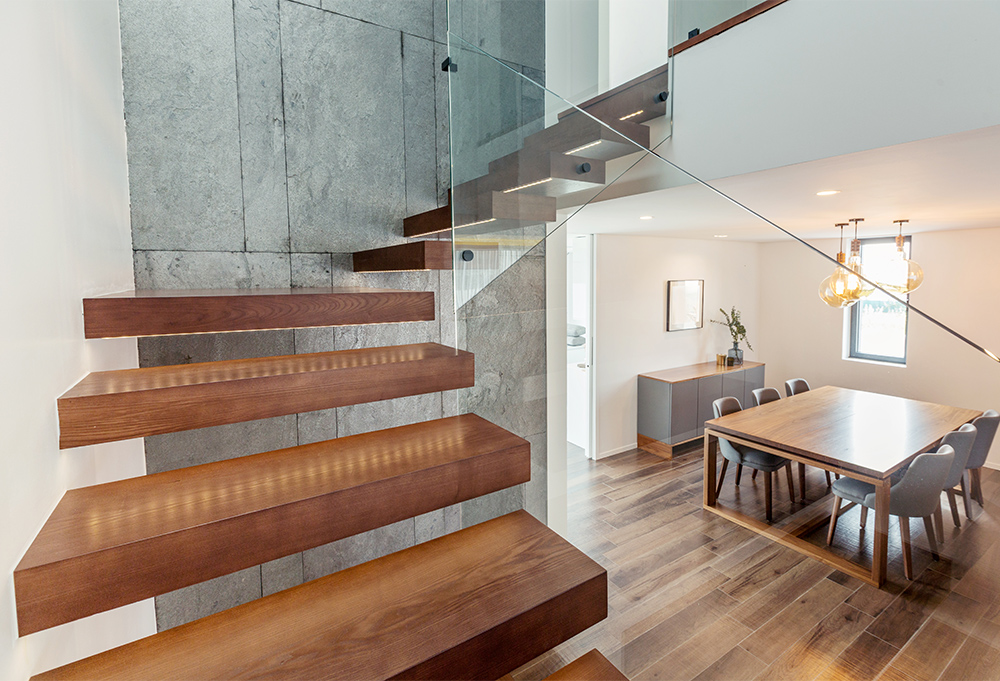
Stairs
Stairs connect the different floors of your home.
They should be wide and well lit to facilitate the circulation of the Chi and avoid falls. If they are very narrow, like spiral staircases, it is important to help the Chi to go up with for example a light at the top and a plant at the foot.
You can also stimulate the Chi by hanging a chime, a crystal, by hanging frames on the walls,...

Garden
The garden is an extension of your home, a privileged space for relaxation that should be as inviting and comfortable as your interior.
Harmony must reign between these two worlds as well as the paths that connect them. To achieve this, Feng Shui encourages us to respect nature and its movements as much as possible.
A clear entrance and a harmonious balance
The paths and walkways leading to your front door should be clear and preferably winding. In the case of large straight paths, a few plants should be left overflowing to slow down the movement of the Chi.
But in both cases, the paths should be kept clean and clear so as not to divert the natural flow of the Chi. In the same way, we will emphasize the curves of the borders, the lawn or the trees in order to break with the straightness of the lines of the house and thus achieve a harmonious balance.
A Yin / Yang balance
The ideal Feng Shui garden is characterized by a large quantity of flowers, trees and shrubs in good health, blooming and carefully pruned in order to maintain the balance between the different elements of the garden. Fountains, ponds and small streams, especially in the Fortune area, will add a small aesthetic touch and a much appreciated relaxing effect.
Always try to maintain the Yin / Yang balance by adding soft foliage with rocks, diversifying the shapes, colors and textures of plants, etc. It is also important to reserve a space where nature can flourish according to its own extravagance.
Think about metallic objects, earthen pots... and vary the materials to balance the Five Elements.
Furniture and fittings
As for the furniture, it will meet your needs: table, chairs, lounge chairs, umbrellas, ... preferably with rounded shapes and natural materials such as wood. Create spaces separated by trellises on which you can run climbing plants. Avoid only thorny plants, especially in the dining area.
Lighting
Lighting is also important. Soft and subtle, it contributes to the atmosphere of the garden. It allows you to enjoy the summer evenings, as a couple, with friends, etc. It contributes to the feeling of intimacy. One will appreciate particularly the candles and lanterns placed on the table, the suspended lanterns, the spotlights hidden behind a rock or a bush,...
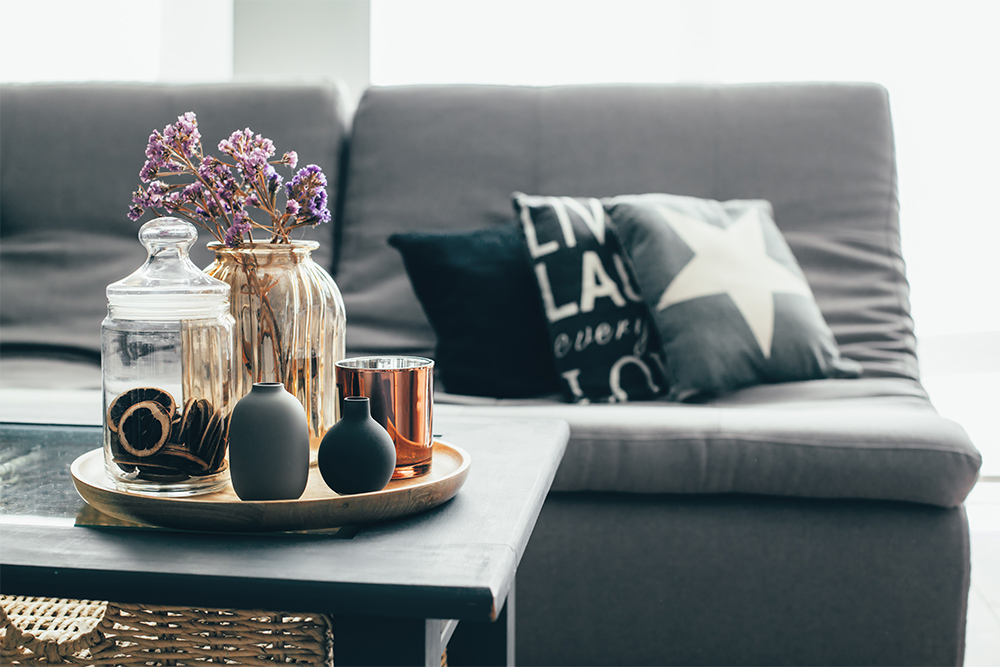
Accessories that strengthen the Chi
In order to remedy imbalances, weaknesses or missing areas within a house or apartment, various accessories can be used.
The more external factors of nuisance and stress exist, the more necessary it is to take transformative and protective measures.
This can take the form of traditional decoration of the entrance with protective symbols or accessories which, by their stimulating action, strengthen the energy of the house.
Double-glazed windows, wind chimes or fountains with a soothing splash will help to keep out the obnoxious and sometimes even unbearable outside noise. However, if you like to hear birds singing, children playing or happy dogs barking, don't barricade yourself unnecessarily. If you don't mind these manifestations of life, enjoy them to the fullest.
The sounds and flashes of life also have their positive effects.
The accessories
The objects you love, from the moment you have a privileged and positive relationship with them, become symbols of positive energy. Every time you look at them, these fetish objects transmit positive Chi to you. It is therefore ideal to look for your Feng Shui accessories in your own environment.
Create your own Feng Shui universe from your happy memories, from the personal tastes that make you feel happy, from all the little things in life that make you smile...
Lighting
Whatever the room, you need to choose appropriate and adaptable lighting. A welcoming and well-lit room will have a particularly positive influence on your attitude and morale, whereas a dark environment may plunge you into a lethargic and amorphous attitude, or even depression.
The Chi in a twilight and taciturn environment stagnates, as does the fate of the people who live or work there. The principles of Feng Shui suggest respecting certain codes of balance: if a room is darkly furnished, you should install much brighter lighting, as opposed to a room where the furniture is light and where you can provide more intimate lighting.
Work on improving the ambiance of your rooms by varying the lighting sources. Floor lamps, overhead lights or indirect lights can enhance certain rooms.
A variety of light sources can also be used to make a room feel bright or intimate, depending on your needs. A light source directed towards the ceiling can easily correct the impression of crushing that it produces or eliminate the feeling of suffocation that heavy beams can cause.
Plants and Flowers
Healthy plants indoors increase Chi and stimulate sluggish nooks and crannies while hiding sharp or abrupt corners. They can be placed near windows as a shield against energy leakage. They should be placed generously in verandas to increase their energy potential.
However, it is important to note that plants should never obstruct the windows so that the Chi can circulate. For a judicious choice, refer to a guide on indoor plants and learn about the properties of each one. Beware that some plants are toxic, so take this into account if you have young children or pets.
As for fresh flowers, do not deprive yourself of them. They symbolize the richness and magnificence of nature. They represent happiness and are a fabulous invitation to the Chi.
Every interior should always have flowers because the effect of flowers is spontaneous. However, avoid dried flowers. They are more associated with death and sterility.
You can also refer to a guide on indoor plants and learn about the properties of each to make a wise choice. Be aware that some plants are poisonous, so keep this in mind if you have young children or pets.
Water
The use of water in the Feng Shui universe is the fundamental factor in the quest for calm and tranquility. Aquariums, indoor fountains, waterfall images are all stimulants for the Chi and call for financial energy, prosperity and beneficial events.
Obviously, accessories related to the Water Element are particularly appropriate in the area of Wealth. But sometimes, water can be a source of agitation. It would be best not to leave water fountains or aquarium filters running overnight, unless they are far enough away from where you sleep.
Pictures
Whether it's a photo, drawing, print or painting, it only needs to have special meaning to you. Images that are important to you and that bring back happy memories are always welcome in your environment. They are a source of encouragement and energy in difficult times.
In the case of artists' paintings, it is important for you to know that they produce specific vibrations. Since they bear the indelible mark of the creative emotion of the artist who did them, be sure to avoid violent subjects like Egon Schiele or macabre ones like Goya, for example, and surround yourself with dynamic works that are full of life.
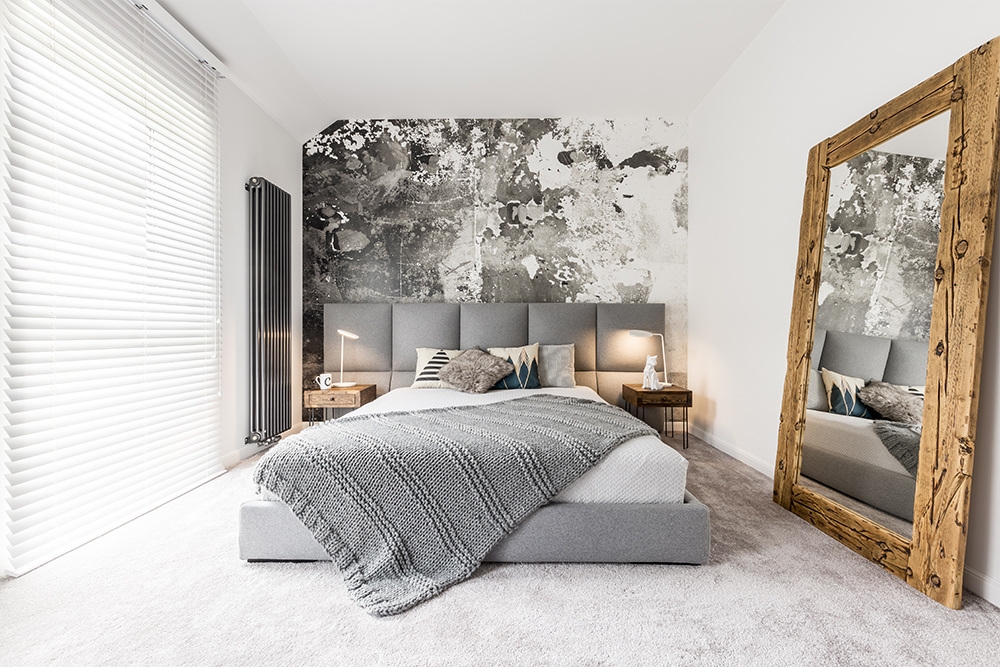
Mirrors
The reflective qualities of mirrors can be used to protect against bad chi in any home. Consider putting reflective objects on the outside of your home to stop this harmful energy from reaching the outside.
You could attach a polished brass knocker or a metal number plate to your main door. Equip your garden with shiny metal objects...
Use the potential of the mirror as an energy collector to reflect, for example, beautiful exteriors such as a mountain, a happy forest, or a body of water that attracts wildlife. You can also use them to open up rooms that are too small.
Another of their qualities will be to replenish the energy in the areas absent from the Pa Kua. The mirror is the ally that brings a feeling of mastery of the action behind you. You will thus feel a significant sense of security.
Chimes, spirals and other moving objects
The craze for wind chimes is not just aesthetic. You will use them for all sorts of reasons, including to delineate the inner world from the outer world. Like any instrument that creates harmonious sounds, chimes enhance the Chi. They should give an impression of clarity and purity.
DNA spirals increase the energy level and balance this energy when they are given a prominent place in the middle of the house. But their main function is to encourage us to be realistic about our mortal condition while reminding us of our human and spiritual duties.
Any moving accessories such as mobiles or objects moved by air currents have a strengthening effect while cancelling the manifestations of Shar Chi. Display them in front of sharp corners, in long corridors or in places where there is little life, such as in closets, to invite positive energies to manifest themselves.
In children's rooms or playrooms, it is advisable to hang light mobiles with joyful and colorful symbolism. Animals or heroes with wisdom, courage, positive strength will be welcome in their intimate universe.
Crystals
Crystals capture light and break it down into rainbow-like colors. Thus, near windows and exposed to the sun, they will accomplish their miraculous mission. They can activate the less animated corners, under (or thanks to) a good lighting. They are also excellent shields against Shar Chi in corridors or at a direct line between a door and a window.
Heavy objects
While placed in some places, they could create impressions of suffocation or crushing, heavy objects, if used in other places, will instead fulfill much more chivalrous charges: namely, the protection and stability of your home.
These objects are capable of stopping the flow of energy that is too strong and out of control on stairs or in open spaces. If your life is hazardous or unnecessarily hectic, set up heavy objects in the corresponding Pa Kua area. Be careful not to store heavy or bulky furniture in children's rooms, however.
Personal objects
The power of personal objects comes from the importance you give them. Any object or accessory related to a memory can become a Feng Shui tool.
choices. The meaningful charge of which you dress them will inevitably trigger a positive radiation around you. Other people's opinions should only count if you have asked for them and if they are particularly important to you.
Conclusion
Feng Shui is a simple and logical way to improve your environment.
Only your intuition, a good mindset and some common sense applications will be enough to make you feel good in your life, at home and at work.
There is no need to embark on exhaustive renovations or on the acquisition of oriental decoration that would not correspond to your deepest values while at the same time shedding considerable amounts of money. It's all about positive thinking, self-esteem and personal taste.
To be happy, be Feng Shui... the Western way!
